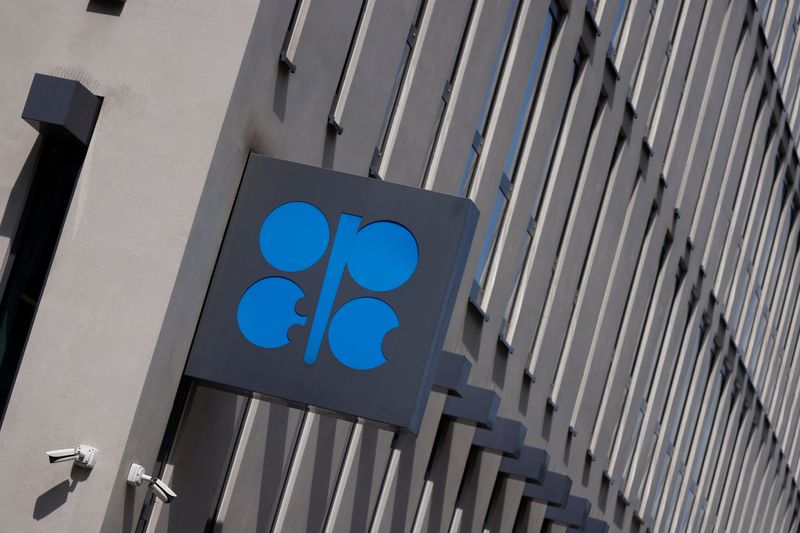By Ahmad Ghaddar, Maha El Dahan and Olesya Astakhova
DUBAI/LONDON (Reuters) -OPEC+ has delayed a ministerial meeting expected to discuss oil output cuts to Nov. 30 from Nov. 26 as producers struggled to agree on production levels and hence possible reductions, OPEC+ sources said, a surprise delay that sent oil prices sliding.
Three OPEC+ sources said this was linked to African countries. OPEC+ said after its last meeting in June that the 2024 output quotas of Angola, Nigeria and Congo were conditional on reviews by outside analysts.
Sunday's meeting of the Organization of the Petroleum Exporting Countries and allies such as Russia, known as OPEC+, had been expected to consider further changes to a deal that already limits supply into 2024, according to analysts and OPEC+ sources.
"Uncertainty is never good for financial markets, with markets now having to wait longer to get clarity what OPEC+ does next year," said UBS analyst Giovanni Staunovo.
"The postponement of the meeting also shows there are some different views among the group participants."
Brent crude settled down 49 cents a barrel at $81.96, recovering from steep losses earlier of nearly 5% after news that the dispute was linked to African producers, among the smaller exporters in OPEC. That led some investors and analysts to downplay the importance of the issue that caused the delay.
Brent has fallen from near $98 in late September, pressured by rising supplies and concern about demand and a potential economic slowdown.
Russian Deputy Prime Minister Alexander Novak and Saudi Energy Minister Prince Abdulaziz bin Salman agreed to delay the meeting, another OPEC+ source said, citing issues around other producers.
The Sunday meeting had been expected to convene in OPEC's Vienna headquarters. OPEC announced the delay in a statement which didn't mention if the group would convene online or in person on Nov. 30, although three delegates said it was expected to be in person in Vienna.
EXTRA CUTS?
Several analysts have predicted OPEC+ is likely to extend or even deepen oil supply cuts into next year and some, including Helima Croft at RBC (TSX:RY) Capital, have said Saudi Arabia might ask other members to share the task.
"We see some scope for the group to do a deeper reduction," Croft said this week.
Before the OPEC statement, Bloomberg News reported that the meeting could be delayed for an unspecified period of time, citing delegates who said Saudi Arabia had expressed its dissatisfaction with other members about their output numbers.

Saudi Arabia, Russia and other OPEC+ members have already pledged oil output cuts of about 5 million barrels per day (bpd), or about 5% of daily global demand, in a series of steps that started in late 2022.
This figure includes a 1 million bpd voluntary reduction by Saudi Arabia and a 300,000 bpd cut in Russian oil exports, both of which last until the end of 2023.